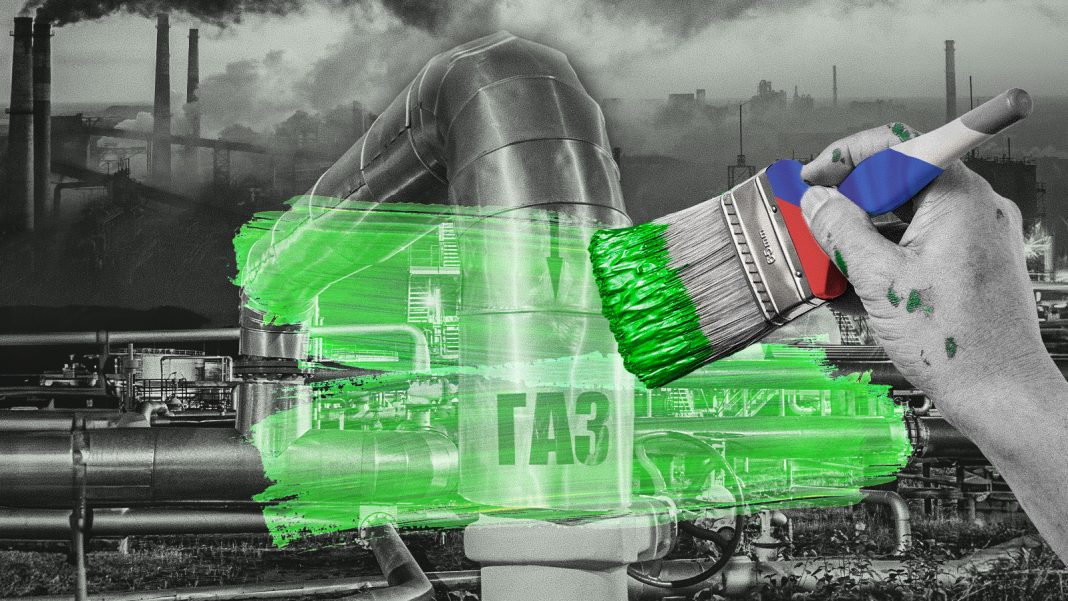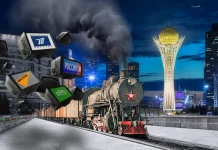Russian disinformation shifts from denial of climate change to deceit about the EU’s efforts to adapt and reduce the effects of climate change. It mixes misleading claims about Western efforts with conspiratorial insinuations of colonialism to target African countries and falsely portrays Russian gas as the only viable solution.
Pro-Kremlin disinformation outlets and commentators have a long history of denying the reality of climate change. They have alleged that the West invented the climate ‘hoax’ to stop Russia’s economic development. They have claimed that Western countries use environmental regulations to harm their economic competitors. They have even demonised Greta Thunberg while referring to environmentalism as a ‘green madness’.
These outlets appear to realise, however, that conspiracy-mongering and name-calling, while appealing to a fringe of true believers, could alienate more mainstream readers. So, many articles, especially in outlets targeting international audiences such as RT English, accept the scientific consensus that climate change is happening. But Russian propagandists are also using this acceptance as yet another weapon to attack the West.
Russian state-controlled outlets and their amplifiers have adopted a typically flexible and opportunistic approach in covering climate change. They allege that Western governments – especially EU governments – are corrupt, hypocritical, incompetent, or neo-colonialist in addressing the issue. They also claim that any EU transition to renewable energy cannot occur without Russian gas imports. And, for old time’s sake perhaps, some in Russian-language media still regard climate change as ‘another fraudulent trick of the West’.
Let’s look at each narrative in turn.
Russia as Africa’s protector
The larger disinformation narrative underpinning the pivot way from climate change denial is one that the Kremlin uses most frequently. This is the false assertion that ‘the West is corrupt’, in all senses of the world – morally, politically and economically. The narrative is then used to juxtapose Russia and the West, styling the former as the protector of all that is good and decent.
This manipulative tactic is particularly used to target African countries, as was evidenced by pro-Kremlin disinformation surrounding the recent Africa-Russia summit. Pro-Kremlin and Russian state-controlled outlets allege that by adopting environmental standards, the EU, is not really trying to fight climate change. Rather, Europeans want to strangle Africa’s economic development or seize the benefits of such development for themselves.
As is typical for conspiracy theories, this narrative has no evidence. Rather, it is simply an assumption of bad faith. The supposed conspirators must be up to no good. It helps the Kremlin’s cause that they can draw upon the often ruinous legacy of European colonialism in Africa to assert, falsely, that since some European countries acted badly in the past, all EU countries must be acting badly now.
One example cited a Russian politician claiming that Western environmental measures are part of a ‘guerrilla war’ against Russian oil producers and that ‘environmentalists have been in this [war] from the very beginning’. In addition, an article in Sputnik Afrique quoted a Russian diplomat as alleging that the West is ‘imposing “green credits” on African governments’ that are part of an effort ‘to prevent the true industrialization of African countries.’ The solution? Russia’s help. Or as one official said, ‘Russia can offer credible alternatives’ to renewable energies such as ‘its nuclear expertise’.
The truth is that cooperation between Africa and the EU is only getting stronger. For example, the Africa-EU Green Energy Initiative intends, by 2030, to supply 100 million Africans with access to electricity by helping to develop 50 gigawatts of renewable energy production. To do so, it seeks to marshal €15 billion from EU public institutions and private investors towards renewable energy, energy efficiency, and associated projects. €3.2 billion of that amount will come from direct EU grants. And the Initiative, of course, is completely voluntary.
Read more for yourself about this project and others that are strengthening ties between the EU and Africa.
Hot air, but no gas, from the Kremlin
While Moscow casts itself as Africa’s protector from EU renewable energy demands, it desperately hopes to keep Europe dependent on Russian fossil fuels, in particular gas. Towards that end, pro-Kremlin commentators alleged that without Russian energy, the EU’s campaign to fight climate change is hopeless.
Some outlets asserted more broadly that EU sanctions against Russia for its unprovoked invasion of Ukraine would prevent Europe from meeting its climate goals. Outlets recounted horror stories about Eastern European countries suffering terribly after abandoning Russian gas.
In fact, the EU remains committed to meeting its climate change goals, despite the Kremlin’s decision to cut off Russian gas. Worth noting, however, is that this argument falls within a larger Russian disinformation narrative that cutting off Russian hydrocarbons would destroy EU economies and lead to Europeans freezing in winter. Those predictions were wrong.
Old lies die hard
Russian state media outlets aim to build credibility among international audiences by accepting climate change as real. The Kremlin then wants to use that credibility to accuse the West of using environmental standards as weapons against developing countries, but mostly against itself. The tactic is sneaky but ultimately as clear as carbon dioxide: use concerns about climate change to protect and promote Russian hydrocarbon production.
But some commentators – including in Russian-language outlets – could not let old conspiracy theories rest. For example, one pro-Kremlin article in Moldova stated, ‘[G]lobal warming, climate change, etc. are just a pretext for imposing inhuman plans for the “reorganisation” of man and society’. An article in Georgia called wind and solar energy a ‘fantasy’. And a well-known Russian expert claimed that global warming is ‘another fraudulent trick of the West’ and ‘a weapon in the West’s hybrid was against humanity alongside such cliché symbols as “democracy”, “democratic values”, and “human rights”’.
EUvsDisinfo has exposed such denialism before. Pro-Kremlin disinformation peddlers might try to spin new topics, but their tactics are often repetitive and unimaginative. The pivot from climate change denialism to the fall-back mantra of ‘blame the west’ is a case in point.





